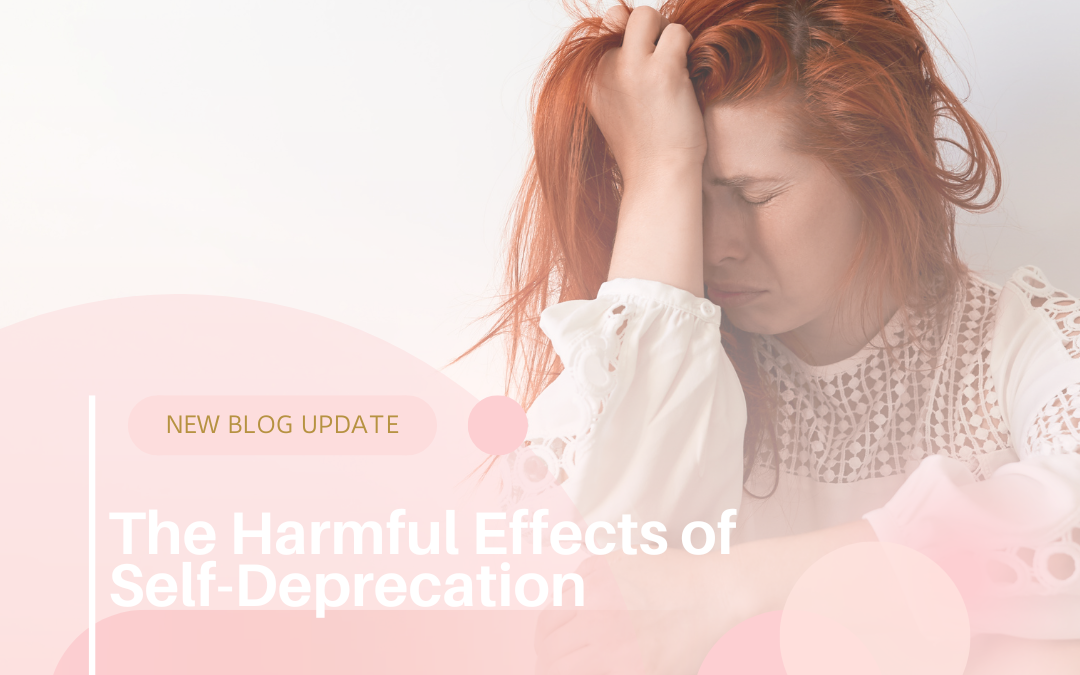In today’s culture, especially in online spaces and casual conversations, self-deprecation has become a common form of humor and communication. Whether it’s joking about our own shortcomings, downplaying accomplishments, or brushing off compliments with sarcasm, self-deprecating talk often feels like a safe way to connect with others, appear humble, or deflect attention. But while it may seem harmless—or even charming—there are deeper, more damaging effects of chronic self-deprecation that can undermine mental health and personal growth.
What Is Self-Deprecation?
Self-deprecation involves belittling or undervaluing yourself, your abilities, or your achievements. This might sound like:
-
“I’m so stupid.”
-
“I can’t do anything right.”
-
“Of course I failed—what else is new?”
Sometimes it’s cloaked in humor, and sometimes it’s a sincere expression of self-doubt. Either way, repeated self-deprecating statements become more than words—they shape beliefs.
1. It Reinforces Negative Self-Perception
The more often you say something, the more likely you are to believe it. When you consistently speak negatively about yourself, your brain begins to absorb and reinforce those thoughts. Over time, this can create a skewed self-image where your flaws are exaggerated and your strengths are diminished. This distorted self-perception can lead to low self-esteem, feelings of inadequacy, and even depression.
Words shape identity. If you’re constantly telling yourself you’re not good enough, eventually you’ll believe it—even if it’s not true.
2. It Sabotages Confidence and Growth
Confidence is built through self-affirmation and the acknowledgment of progress, not by minimizing your efforts or dismissing your capabilities. Self-deprecation strips away your confidence and plants seeds of doubt about your potential. This inner narrative can make you second-guess opportunities, fear failure, and avoid new challenges—ultimately stunting personal and professional growth.
3. It Teaches Others How to Treat You
Whether in personal relationships or professional environments, self-deprecating language can unintentionally signal to others that you don’t value yourself. When you continually diminish your own worth, people may begin to mirror that sentiment, consciously or unconsciously treating you with less respect or seriousness. This dynamic can erode healthy boundaries and foster imbalanced or even toxic interactions.
4. It Disguises Deeper Emotional Struggles
Often, chronic self-deprecation masks deeper emotional wounds—unresolved trauma, anxiety, shame, or a history of criticism. Using humor to deflect these feelings might provide short-term relief, but it doesn’t address the root causes. In fact, it can delay healing by keeping those emotions buried under layers of sarcastic self-loathing.
5. It Undermines Authentic Connection
People often use self-deprecation as a way to be relatable or to lighten the mood. But ironically, it can create barriers to authentic connection. When you constantly joke about your flaws, it may prevent others from seeing your true self—or from opening up about their own vulnerabilities. Authentic relationships thrive on mutual respect, encouragement, and honesty, not on shared self-criticism.
How to Break the Habit
Breaking the cycle of self-deprecation requires intention and self-awareness. Here are a few ways to start:
-
Notice your language. Keep track of how often you speak negatively about yourself. Awareness is the first step.
-
Challenge the thought. When you catch yourself being self-deprecating, ask: Is this actually true? Would I say this to a friend?
-
Practice self-compassion. Replace harsh self-talk with kinder, more supportive language.
-
Accept compliments. Say “thank you” without disclaimers.
-
Seek support. If self-deprecating thoughts are deeply rooted, working with a therapist can help you explore and reframe these beliefs.
Final Thoughts
While self-deprecation may feel like a harmless quirk or a tool for humor, it can have lasting negative effects on your mental well-being, relationships, and self-worth. By becoming more mindful of your inner dialogue and treating yourself with the same kindness you’d offer others, you can foster a healthier, more empowered sense of self.
Remember: You deserve to speak to yourself with respect.


Recent Comments